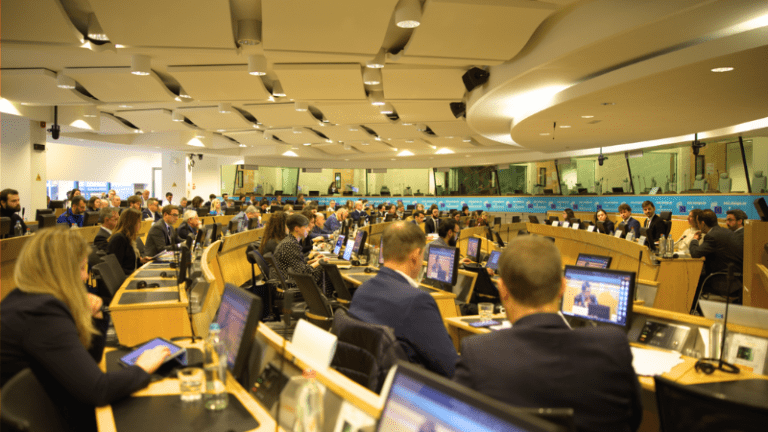In an increasingly tumultuous world, strengthening the European digital economy is not only a great ambition for European policy makers: it is an essential determinant of the continent’s prosperity and security.
The US election result is a wake-up call about Europe’s excessive dependence on foreign countries’ technological infrastructure. European consumers, businesses and public administrations rely entirely on their network of interconnected assets – since chips, data storage and computing power towards digital platforms and generative AI. Europe does not sufficiently own or control any part of the technology stack that underpins the world today.
Draghi underlines in his report that 70% of new value created in the global economy will be enabled by digital technology over the next decade. However, the European digital industry still lags behind that of the United States and China. If we do not change course soon, this gap will continue to widen until it becomes irreversible.
That of Ursula von der Leyen appointment of Henna Virkkunen as the European Commission’s first-ever Executive Vice-President for Technological Sovereignty indicates that digital autonomy is high on the EU political agenda. However, there is a lack of a clear strategy on how Europe intends to ensure its technological sovereignty.
More regulation will not solve the problem. Europe is already struggling to effectively implement existing laws: from continued GDPR violations by social media platforms to tech giants’ defiance of the DMA and DSA, the new EU regulation on American champions would only result in a furious response from Trump with tariffs, or worse, with a reduction in tariffs. defense protection.
Ensuring Europe’s digital independence can only be achieved through a joint effort of Europe’s private and public sectors. Europe urgently needs a comprehensive industrial strategy to align the objectives of governments and industry, so that Europeans can have their technology stack, the eurostack. Investments, public procurement, standards, incentives, public-private partnerships and other tools must all be consistent and support a common vision of technological independence.
Even if European industry is very fragmented and does not have the size of the American or Chinese technological champions, it does not lack innovation and technological capacity either. Governments must provide strategic direction and support to unite the private sector.
European technology companies, in particular SMEs, play a central role in the transformation of the European digital economy. SMEs represent 99% of European businesses. Small digital businesses are drivers of digital innovation, particularly in the B2B sector. European SMEs, startups and digital scaleups are the leading providers of software and services that power the digital transformation of other businesses and public administrations, in particular small and medium-sized enterprises. By placing digital SMEs at the heart of its digital strategy, Europe can not only strengthen its technological sovereignty, but also achieve true digital leadership..
Europe needs an ambitious and coherent policy eurostack strategy, in which European technology SMEs will be at the heart of providing the digital public infrastructure that will unleash innovation and enable European digital sovereignty. The DIGITAL SME Summit, taking place on December 10 at the European Economic and Social Committee, will bring together leading experts, key industry players and policy makers to advance the debate on Europe’s digital sovereignty. Sign up to join here.
Sebastiano Toffaletti is the Secretary General of the European DIGITAL SME Alliance.


